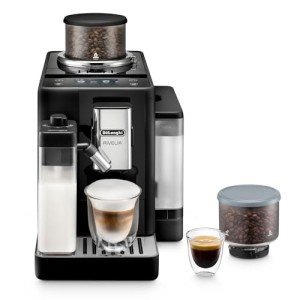Unlocking the World of Bean to Cup Machines: Your Ultimate Guide
In the last few years, the demand for fresh, premium coffee has risen, resulting in a rise in the popularity of bean to cup machines. These devices offer a practical method for coffee lovers to take pleasure in newly ground coffee at the touch of a button. This article explores the benefits, features, and considerations of bean to cup machines, guaranteeing readers are knowledgeable before purchasing.
Understanding Bean to Cup Machines
Bean to cup machines are automated coffee makers that grind whole coffee beans right before developing. This process takes full advantage of taste retention, aromas, and essential oils, supplying a remarkable taste experience compared to pre-ground coffee. Designed for convenience, these machines can produce a variety of coffee designs, including espresso, cappuccinos, and lattes.
Advantages of Bean to Cup Machines
- Freshness: Grinding the beans instantly before developing preserves the coffee's natural tastes. Fresh coffee premises launch essential oils that contribute to a richer taste.
- Convenience: Many bean to cup machines are developed for easy to use operation. With the push of a button, users can enjoy their favorite coffee beverages without complex brewing techniques.
- Flexibility: Most machines offer personalized settings, allowing users to change grind size, coffee strength, and drink size according to individual preferences.
- Consistency: With automated grinding and brewing processes, these machines offer consistent brewing results, ensuring a quality cup each time.
- Affordable: While the in advance investment might be higher, the long-term savings from avoiding coffee shop sees can make these machines financially beneficial.
Secret Features to Consider
When choosing a bean to cup machine, it's necessary to search for specific features that match private needs. The following table summarizes essential functions and their advantages:
| Feature | Description | Benefit |
|---|---|---|
| Grind Settings | Adjustable settings for different grind sizes (coarse to fine) | Allows modification based on coffee type and choice |
| Milk Frother | Integrated frothing innovation for velvety textures in milk-based beverages | Enhances coffee variety (e.g., lattes, coffees) |
| Water Reservoir Size | Differs from 1 to 2 liters; some machines have integrated water filters | A larger tank requires less regular refills |
| Interface | Digital displays and programmable options for various beverage settings | Makes it easy to customize beverages |
| Cleaning and Maintenance | Automatic cleaning cycles and detachable developing systems | Simplifies maintenance for long-lasting use |
Leading Bean to Cup Machines on the Market
The market is saturated with bean to cup coffee machines, each offering special features. Here's a list of a few of the leading designs currently readily available:
De'Longhi Dinamica ECAM35020
- Functions: Adjustable coffee strength, integrated frother, automatic cleansing
- Pros: Compact design, easy to use user interface
Breville Oracle Touch
- Functions: Touchscreen operation, dual boiler system, programmable settings
- Pros: High-end efficiency, flexible developing choices
Philips 3200 Series
- Features: Touch display screen, 5 various coffee styles, AquaClean filter
- Pros: Affordable, simple to clean
Jura E8
- Features: Pulse Extraction Process, fine foam innovation, intelligent water supply
- Pros: Excellent quality, wise innovation integration
Siemens EQ.9
- Functions: Dual coffee beans compartment, home link app, personalized settings
- Pros: Versatile, clever home combination abilities
Maintenance Tips for Bean to Cup Machines
To make sure a long lifespan for a bean to cup machine, regular maintenance is important. Here are some helpful suggestions:
- Daily Cleaning: Clean the developing unit and water tank every day to prevent residue accumulation.
- Usage Fresh Beans: Store coffee beans in an airtight container to preserve freshness. Avoid buying excessively large quantities.
- Descale Regularly: Follow the maker's guidelines for descaling to avoid mineral buildup.
- Inspect for Wear and Tear: Regularly inspect parts for signs of wear, specifically the mill and the water supply.
Regularly Asked Questions (FAQs)
What is the cost range for bean to cup machines?
The rate of bean to cup machines can differ substantially. Basic designs begin around ₤ 300, while high-end designs can go beyond ₤ 2,000. The right option will depend upon features wanted and budget restraints.
Are bean to cup machines challenging to clean up?
A lot of bean to cup machines include functions designed for simple cleansing. Many designs have automatic cleaning processes, and removable elements simplify maintenance.
Can bean to cup machines make iced coffee?
While beans to cup machines primarily focus on hot beverages, some models have features that allow users to prepare cold drinks by changing brewing temperature and strength.
Do bean to cup machines require special coffee beans?
There are no specific bean limitations; nevertheless, it is normally recommended to utilize high-quality coffee beans for optimum flavor.
How long do bean to cup machines last?
With proper maintenance, a great quality bean to cup machine can last anywhere from 5 to 10 years, making it a worthy investment for coffee enthusiasts.
Bean to cup machines provide an advanced way to delight in coffee in the house. With Real Coffee Machine to brew a fresh cup of coffee at the push of a button, these machines cater to both casual drinkers and severe coffee enthusiasts. By comprehending the key functions, benefits, and upkeep ideas, customers can make informed purchasing decisions, ensuring their journey into the world of newly brewed coffee is as satisfying as possible.

